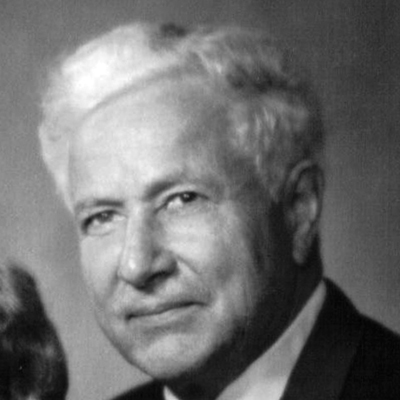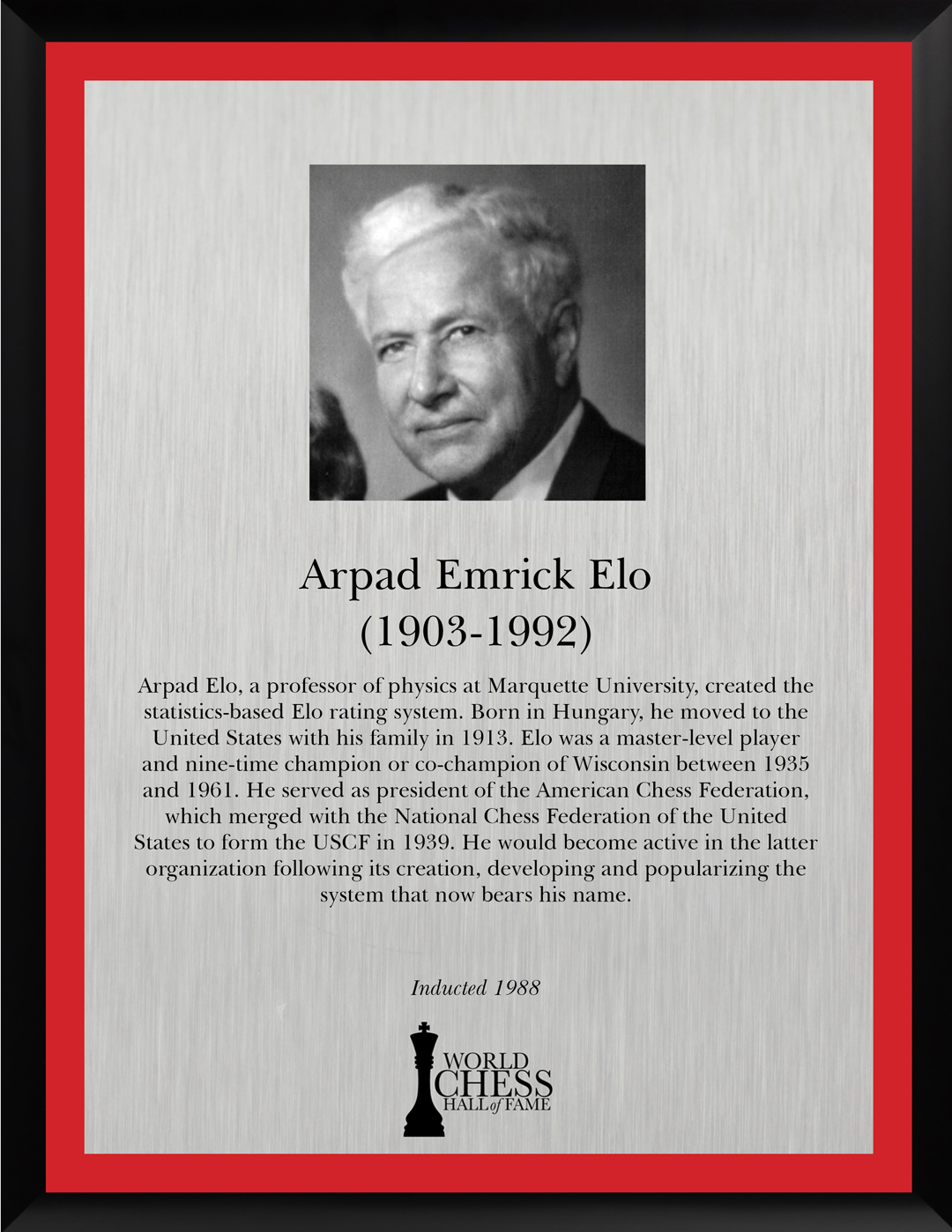 (1903-1992)
(1903-1992)
U.S. Chess
Hall of Fame
Inducted 1988
Arpad Elo, a professor of physics at Marquette University, created the statistics-based Elo rating system. Born in Hungary, he moved to the United States with his family in 1913. Elo was a master-level player and nine-time champion or co-champion of Wisconsin between 1935 and 1961. He served as president of the American Chess Federation, which merged with the National Chess Federation of the United States to form the USCF in 1939. He would become active in the latter organization following its creation, developing and popularizing the system that now bears his name.
During the 1950s, official U.S. chess competition was governed by the Harkness system, named after Kenneth Harkness, and rated players based on the quality of their competition at individual tournaments. Dissatisfied by the apparently arbitrary nature of this approach, Elo purposefully designed his system to be more objective and mathematical. The USCF adopted it at its 1960 meeting in Saint Louis, and FIDE followed suit a decade later in 1970, making the “Elo system” the basis for awarding titles, grading tournaments and rating chess players worldwide. Until the mid-1980s, Elo would make the calculations himself. Elo’s book, The Rating of Chess Players, Past & Present, as well as his paper, “Age Changes in Master Chess Performance,” remain the standard works on their respective subjects. More recently, the Elo system has expanded beyond the chess world and is now being used in various two-player competitions at both collegiate and professional levels, as well as in various Massively Multiplayer Online Roleplaying Games (MMORPGs) such as World of Warcraft.



